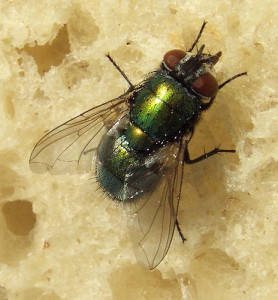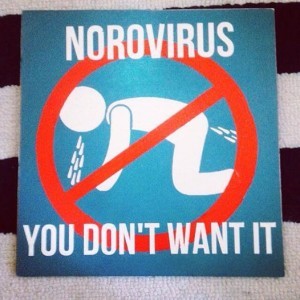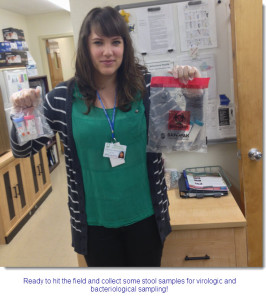Norovirus infections—sometimes known as the stomach flu—typically last for the same amount of time, independent of age or the type of norovirus a person is infected with, according to a recent study by the University of Georgia College of Public Health, Emory University and the Centers for Disease Control and Prevention in the journal Epidemiology and Infection.
 Symptoms from a norovirus infection last about two days, a finding that is constant between infected individuals, as well as environmental settings. The incubation period-or time until symptoms start-is also a consistent 1.5 days from time of infection. These findings differ from the authors’ expectations.
Symptoms from a norovirus infection last about two days, a finding that is constant between infected individuals, as well as environmental settings. The incubation period-or time until symptoms start-is also a consistent 1.5 days from time of infection. These findings differ from the authors’ expectations.
“I would have expected there to be a difference in something like a hospital setting or a difference depending on age groups,” said Andreas Handel, an assistant professor of epidemiology. “But when we analyzed the data, we didn’t see much of a difference.”
One caveat noted by the authors is that the data they analyzed was reported on the level of individual outbreaks, not individual patients. Future studies looking at individual patients are required to further test the findings.
The journal article on “Association of host, agent and environment characteristics and the duration of incubation and symptomatic periods of norovirus gastroenteritis” is available at http://journals.cambridge.org/action/displayAbstract?fromPage=online&aid=9456829











